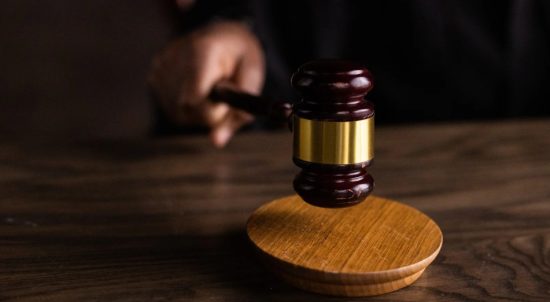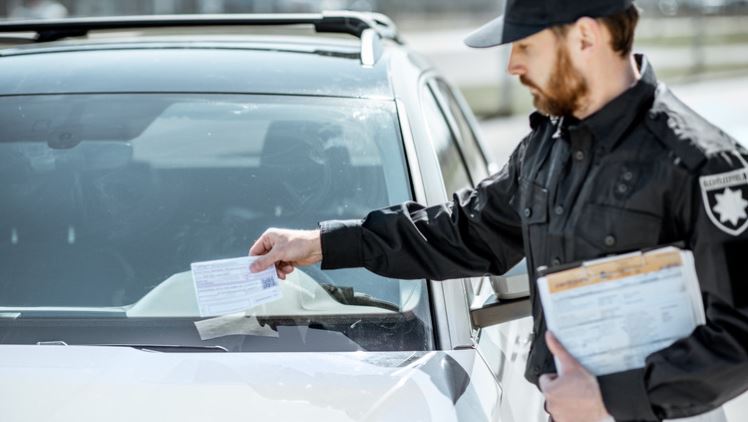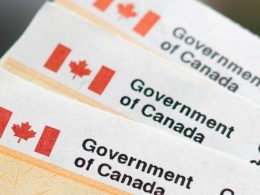Jury duty is a fundamental aspect of the Canadian judicial system, allowing citizens to participate in upholding justice.
Every year, thousands of Canadians are summoned to serve as jurors, contributing to fair trials and ensuring impartial decisions in legal proceedings. However, not everyone is eligible or required to serve.
Understanding who qualifies for jury duty and who is exempt is essential for both citizens and employers, ensuring legal compliance and protecting the rights of individuals unable to serve.
In this blog, we will explore the rules and criteria surrounding jury duty exemptions in Canada, the provincial variations, and how individuals can apply for an exemption or deferment if necessary.
What Is Jury Duty in Canada?

Jury duty is a legal obligation for Canadian citizens, representing an essential pillar of the justice system.
Jurors play a pivotal role in trials by helping decide the outcome of cases based on evidence presented in court. This process ensures fairness, impartiality, and adherence to the rule of law.
In Canada, individuals are randomly selected from provincial or territorial lists of eligible citizens, often drawn from voter registration databases or tax records.
Once summoned, a person is legally required to appear in court on the specified date, where they may be chosen to serve on a jury or dismissed if not needed.
The importance of jury duty lies in its contribution to democracy and justice. It ensures that decisions in criminal and civil cases are not solely in the hands of judges but also reflect the perspectives of ordinary citizens.
Jury duty fosters public trust in the legal system by reinforcing transparency and fairness.
However, participating in jury duty can be challenging for some individuals due to personal, medical, or professional reasons.
In such cases, exemptions exist to ensure that only those who can fully commit to the process are selected, while others are excused from the obligation.
Who Qualifies for Jury Duty in Canada?

To qualify for jury duty in Canada, individuals must meet specific eligibility criteria, which vary slightly depending on the province or territory. In general, the following conditions apply:
- Age Requirement: Jurors must typically be at least 18 years old.
- Canadian Citizenship: Only Canadian citizens are eligible to serve.
- Residency: Potential jurors must reside in the province or territory where they are summoned for jury duty.
- Mental Competence: Individuals must be mentally capable of understanding and participating in court proceedings.
While the selection process is random, certain factors can disqualify individuals. For instance, anyone who has a criminal conviction or is currently facing charges is ineligible to serve.
Similarly, those with significant language barriers may also be excluded, as jurors must understand the court proceedings and deliberations.
Provincial differences exist in how juror lists are compiled. For example, Ontario draws names from health records, while British Columbia uses voter registration lists.
Regardless of the source, eligibility requirements ensure that jurors are representative of the community while also being capable of performing their duties effectively.
Who Is Exempt from Jury Duty in Canada?
Certain individuals are exempt from jury duty in Canada due to personal, professional, or medical circumstances. These exemptions are designed to accommodate those who are unable to fulfill the responsibilities of being a juror.
Common Grounds for Exemption Include:
- Age: Seniors above a certain age (often 65 or 70, depending on the province) can request to be excused.
- Health Conditions: Individuals with serious physical or mental health issues may be exempt if they provide medical documentation.
- Professional Obligations: Members of parliament, judges, police officers, and active military personnel are often excluded.
- Caregiving Responsibilities: Parents or guardians of young children, or those caring for elderly or disabled family members, may qualify for an exemption.
- Students or Training Conflicts: Full-time students or individuals in vocational programs may be excused due to educational commitments.
Exemption rules vary by province. For example, Ontario allows seniors aged 65 or older to opt out, while British Columbia requires medical certificates for health-related exemptions.
Understanding provincial laws is crucial to determining eligibility and the process for requesting an exemption.
Can Age or Health Exclude Someone from Jury Duty?

Age and health are among the most common reasons for exemption from jury duty in Canada. Seniors often have the option to decline service based on age limits set by provincial laws.
For instance, individuals over 65 years old in Ontario and over 70 years old in Alberta can request exemptions without providing additional documentation.
Health-related exemptions apply to individuals who cannot participate in court proceedings due to physical or mental conditions.
This includes chronic illnesses, disabilities, or mental health issues that make it difficult to sit through long trials. Medical documentation is typically required to support such requests, ensuring that only genuine cases are excused.
The process for obtaining an exemption involves responding to the jury summons with a detailed explanation and accompanying evidence, such as a doctor’s note.
Provinces like British Columbia and Alberta have specific forms that individuals can fill out to apply for health-based exemptions.
Are Government Officials Exempt from Jury Duty?
Government officials, including judges, members of parliament, and police officers, are typically exempt from jury duty in Canada.
The rationale behind this exemption lies in the potential for conflicts of interest or the demands of their roles, which may interfere with their ability to serve impartially.
For instance, police officers who are actively involved in law enforcement may be seen as biased in criminal trials, while members of parliament may have legislative responsibilities that conflict with the time commitments required for jury duty.
Similar exemptions apply to military personnel actively serving in the Canadian Armed Forces.
In most provinces, these exemptions are automatic, and individuals in these roles are not required to apply for exclusion. This ensures that jury pools remain impartial and free from potential conflicts of interest.
What Are the Rules for Professionals Like Doctors or Lawyers?

Professionals such as doctors, lawyers, and nurses may qualify for exemptions due to the critical nature of their work.
For instance, doctors and nurses who are responsible for patient care can argue that their absence would significantly impact public health.
Similarly, lawyers may be exempt if their legal expertise poses a conflict of interest or if they are directly involved in active cases.
To apply for an exemption, professionals must often provide documentation from their employer or regulatory body explaining their circumstances.
Provinces like Ontario and Alberta have specific guidelines to determine whether an individual’s professional role qualifies for an exemption.
Can Caregivers or Parents Be Excused from Jury Service?
Caregiving responsibilities are another common reason for individuals to request exemption from jury duty in Canada.
Courts recognize that caring for dependents, whether children, elderly relatives, or individuals with disabilities, is a full-time commitment that may conflict with jury service.
Parents with young children, especially those without access to alternative childcare arrangements, are often excused.
Similarly, caregivers for elderly or disabled family members may qualify for an exemption, as their absence could create significant hardship for those under their care.
In such cases, the individual is required to provide documentation, such as proof of caregiving responsibilities, to support their request.
Each province has its own process for handling caregiver exemptions. For instance, in Ontario, parents or guardians may write to the court explaining their caregiving duties, while in British Columbia, caregivers must include detailed information about their dependent’s needs when responding to a jury summons.
This exemption ensures that individuals with critical caregiving obligations are not burdened by the demands of jury duty, which could otherwise disrupt their family or caregiving responsibilities.
Are Students or People in Training Programs Exempt?

Students enrolled in full-time educational programs, such as university, college, or vocational training, may also qualify for jury duty exemptions.
The rationale is that attending court proceedings could interfere with their studies, exams, or scheduled training, leading to significant academic disruptions.
In provinces like British Columbia and Alberta, students are allowed to request exemptions by providing proof of enrollment, such as a letter from their educational institution or a copy of their class schedule.
In Ontario, students must respond to their summons by explaining their inability to attend jury duty due to academic commitments.
It’s important to note that while students can often request deferrals or exemptions, they are still obligated to follow the process outlined in their jury summons. Failure to respond to a summons, even for valid reasons, can result in legal consequences.
This exemption ensures that education remains a priority for students, while also acknowledging their potential future role as jurors once their academic obligations are complete.
Do Criminal Records Affect Jury Eligibility?
In Canada, individuals with certain criminal records are disqualified from serving as jurors. This is because jurors must maintain impartiality and integrity, and a criminal conviction could compromise their ability to participate fairly in a trial.
Common Disqualifications
- Individuals currently serving a prison sentence or on parole.
- Individuals convicted of serious offences such as fraud, assault, or theft within the past two years.
- Individuals who are actively involved in legal proceedings as defendants.
Provincial laws govern the specifics of disqualifications.
For example, in Ontario, individuals with criminal records may be excluded from the juror pool automatically, while in British Columbia, those seeking to clarify their eligibility must provide details of their legal history.
This criterion ensures that the jury remains impartial and free of potential bias, preserving the integrity of the trial process.
How to Request an Exemption or Deferment for Jury Duty?

Applying for an exemption or deferment from jury duty involves responding to the summons with a formal request. Each province in Canada has specific guidelines for submitting these requests, often requiring supporting documentation to validate the reason for exemption.
Steps to Request an Exemption or Deferment
- Review the Jury Summons: Carefully read the instructions and deadlines mentioned.
- Submit a Written Request: Provide a detailed explanation of why you are unable to serve. Common reasons include health issues, caregiving responsibilities, or professional commitments.
- Attach Supporting Documents: Include medical notes, employment letters, or other proof that supports your claim.
- Follow Provincial Guidelines: Check your province’s court website for specific procedures. For example:
- In Alberta, requests can be submitted online or via mail.
- In Ontario, individuals may need to contact the courthouse directly.
It’s important to respond within the timeframe specified in your jury summons. Failing to do so may result in legal penalties, even if you have a valid reason for requesting an exemption.
What Happens If You Don’t Respond to a Jury Summons in Canada?
Ignoring a jury summons can have serious legal consequences in Canada. As a civic obligation, individuals are required to respond to a jury summons, whether they intend to serve or request an exemption.
Consequences of Not Responding:
- Fines: Provinces like Ontario and Alberta impose fines ranging from $500 to $1,000 for failing to appear.
- Court Summons: Individuals who ignore a jury summons may be required to appear before a judge to explain their absence.
- Contempt of Court: In severe cases, failure to respond can result in contempt charges, leading to additional fines or even jail time.
To avoid these penalties, individuals should promptly notify the court of any issues preventing them from serving. Most provinces allow individuals to request exemptions or deferrals, ensuring that genuine conflicts can be resolved without legal repercussions.
How Do Provincial Laws Differ Regarding Jury Duty Exemptions?

Jury duty exemptions vary significantly across Canada’s provinces and territories, reflecting regional differences in judicial procedures and societal needs.
While some rules, such as exemptions for seniors or health conditions, are consistent nationwide, other criteria differ based on local policies.
Key Provincial Differences:
- Ontario: Seniors aged 65 or older can opt out of jury duty, and students can request exemptions by providing proof of academic obligations.
- British Columbia: Exemptions for health conditions require a medical certificate, and requests must be submitted within seven days of receiving the summons.
- Alberta: Caregivers and professionals like doctors can request exemptions with detailed proof of their responsibilities.
- Manitoba: Criminal records and recent court involvement automatically disqualify individuals from jury service.
These differences highlight the importance of consulting local laws when determining eligibility or applying for exemptions. Individuals should visit their provincial court websites for accurate information and guidance.
Conclusion
Canada’s jury system ensures fairness and impartiality in legal proceedings, with exemptions in place to accommodate individuals unable to serve.
Whether due to age, health, professional obligations, or other factors, the criteria for exemptions reflect a balance between civic responsibility and personal limitations.
By understanding these rules, Canadians can fulfill their legal duties or apply for exemptions confidently, ensuring that the justice system functions smoothly while respecting individual circumstances.
FAQs
What is the minimum age for jury duty in Canada?
The minimum age for jury duty in Canada is generally 18 years. You must also be a Canadian citizen and a resident of the province or territory where you’ve been summoned.
Specific eligibility rules may vary slightly between provinces, so it’s best to check your local guidelines.
How can caregivers apply for a jury duty exemption?
Caregivers can apply for an exemption by responding to the jury summons and providing evidence of their caregiving responsibilities.
This may include a written explanation, proof of dependents, or documentation from a medical professional if caring for someone with special needs.
Are students automatically exempt from jury duty in Canada?
No, students are not automatically exempt from jury duty.
However, full-time students can request an exemption or deferment by providing proof of their enrollment, such as a letter from their educational institution or a copy of their class schedule.
What happens if I ignore a jury summons?
Ignoring a jury summons can lead to serious legal consequences, including fines, a court summons, or even contempt of court charges.
Fines typically range from $500 to $1,000, depending on the province.
Do provincial laws differ for jury duty exemptions?
Yes, provincial laws differ significantly in Canada regarding jury duty exemptions.
For example, Ontario allows seniors over 65 to request an exemption, while British Columbia requires a medical certificate for health-related exemptions.
Can someone with a disability serve on a jury?
Yes, individuals with disabilities can serve on a jury as long as their condition does not interfere with their ability to perform the required duties.
However, if the disability makes jury service impractical, they can request an exemption by providing appropriate medical documentation to the court.










